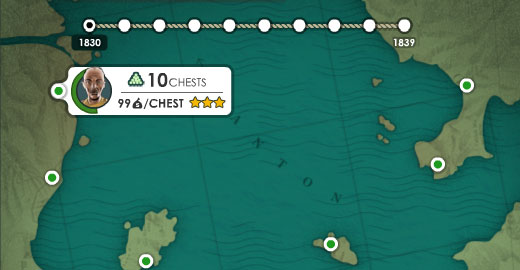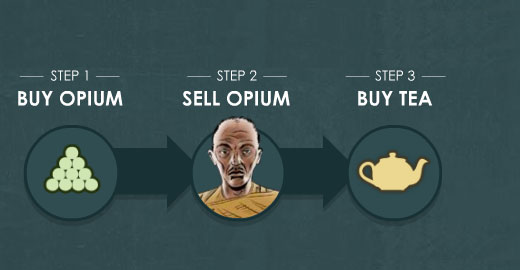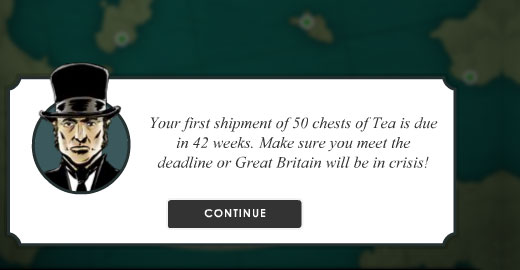Britain might nowadays be an insignificant little country on the edge of Europe (sorry all my UK readers but I have to tell it as it is) but there was a time, not so long ago, when it ruled the largest empire the world has ever witnessed. At its peak in the early 20th century, the British empire held sway over a quarter of the world's population and huge swathes of its landmass. No-one could challenge its military and economic might.
Like most superpowers, Britain in its imperialistic pomp was a bit of a bully. Yes, the Brits started the industrial revolution (to which we are all eternally grateful). Yes, they perfected the brewing of tea (which at least this American living in London appreciates). And, yes, without Britain, there would be nowhere near as many good period dramas on TV. But for much of the time during the 1800s and 1900s, the Brits were a bunch of mischievous rascals, invading other countries, subjugating foreign people and generally making a nuisance of themselves.
To see quite how pesky the country was at its peak, one need look no further than the Opium Wars of the mid-19th century. Back then the war on drugs instigated by this western superpower was not aimed at curbing drug use, as one might foolishly assume, but the exact opposite. Britain went to war multiple times to prevent people not taking drugs!
The victim of Britain's aggression was China. What did the Chinese do to deserve Britain's wrath? Well, they wanted to prevent opium from being trafficked into their country, and had the temerity to pass laws banning British merchants from doing so. Britain was having none of it and immediately went to war in 1839 and then again in 1856 to enforce access to the Chinese market for its opium traders. If losing these two wars was not humiliating enough for China, Britain also nabbed the important Chinese territory of Hong Kong as part of the peace agreement.
It would be a bit like you telling drug dealers to stop selling heroin to your kids and ending up with them running a crack den from your bedroom.
Why, you might ask, am I giving you this history lesson when this is meant to be a gaming site. Certainly not simply to have a dig at Britain, I can assure you (I am an American after all, so can hardly be critical of countries pushing their weight around). No, the reason for highlighting this scurrilous piece of history is High Tea, a brilliant new game brought to you by the folk at The Wellcome Collection as part of their High Society exhibition about drug use in the past. The game explores just the subject matter we have been discussing: Britain, China and the Opium Wars.
So, yes, High Tea is an educational game. But don't be put off by this. The reason we selected the game for review was not that it was worthy or edifying but that it is simply a brilliant game. If you are fan of trading games like Caravaneer, Frontier or Hemp Tycoon, you will love it.
Even if trading games are not your favourites, you may still want to check the game out, if only to ogle one of the most beautiful and intuitive game interfaces I have seen. All credit to London-based design firm Preloaded, which made the game.
In High Tea, you play the role of an entrepreneurial smuggler desperate to meet Britain's insatiable demand for Chinese tea. But how to raise the cash to buy enough tea to keep the Brits happy? Your neat solution is to buy opium from India, flog it to the Chinese and then spend the profit on tea. Sounds simple. There are only three steps, after all: 1 Buy opium, 2 sell it to the Chinese, 3 buy tea.
But this would not be a strategy game if things were as easy as they seem, and the game's developers have dialed up the challenge by giving you a deadline: you only have 50 weeks to deliver your first batch of tea. Fail to meet the deadline and Britain will slip into a tea-withdrawal-caused depression and you will lose the game.
You will also be presented with random events - such as unrest in your Bengal opium fields or resistance from Chinese authorities - that complicate matters, and you can have your boats impounded if they are caught undertaking illicit trades.
The game-play takes place on a map of the region, and the trick to succeed is to work quickly. You need to sell your opium as fast as possible and you do this by clicking on the markers that pop up on the map revealing someone interested in ordering opium. Your boat will them transport the opium to the location and the deal will be clinched.
The markers only appear for a short period and you will often be unable to complete the deal in time because your boat is tied up on another deal. As you progress, you unlock extra boats (up to a max of five), allowing you to complete multiple deals simultaneously.
All the time that you are desperately clicking on the opium demand markers, you also need to keep a watchful eye on your silver coins and opium supplies in the inventory area to the left of the map. Make sure you regularly buy new chests of opium to replenish your stocks. You must also ensure you have enough tea in stock for when the British Tea Clipper comes to pick it up and transport it to Britain.
When you finish the game, it informs you how many Chinese people you got hooked on opium in order to supply X number of cups of tea in Britain. Drinking tea will never feel the same again! High Tea can be played here.
Hat tip to @marthasadie for bringing the game to our attention.



Add comment
-
-
-
Submit